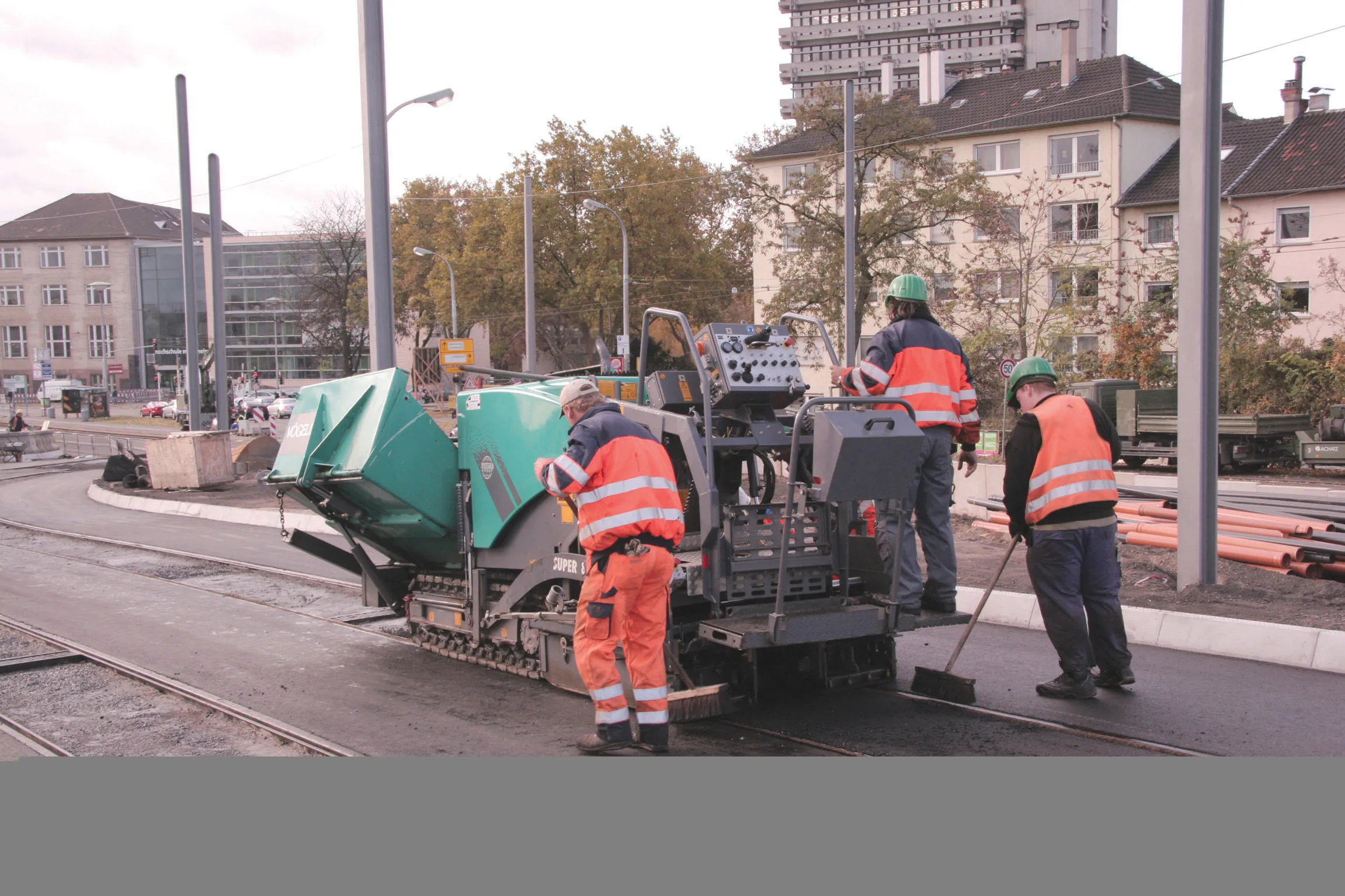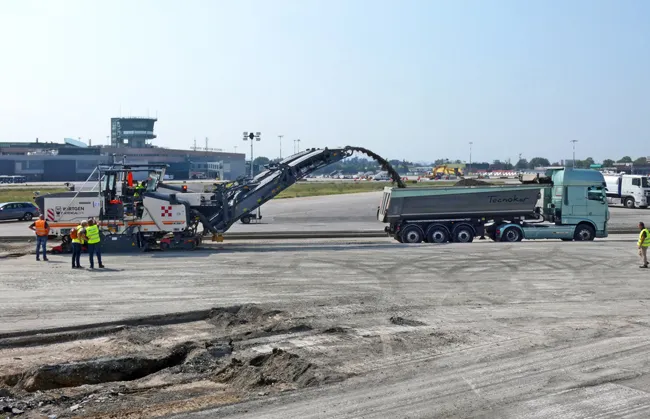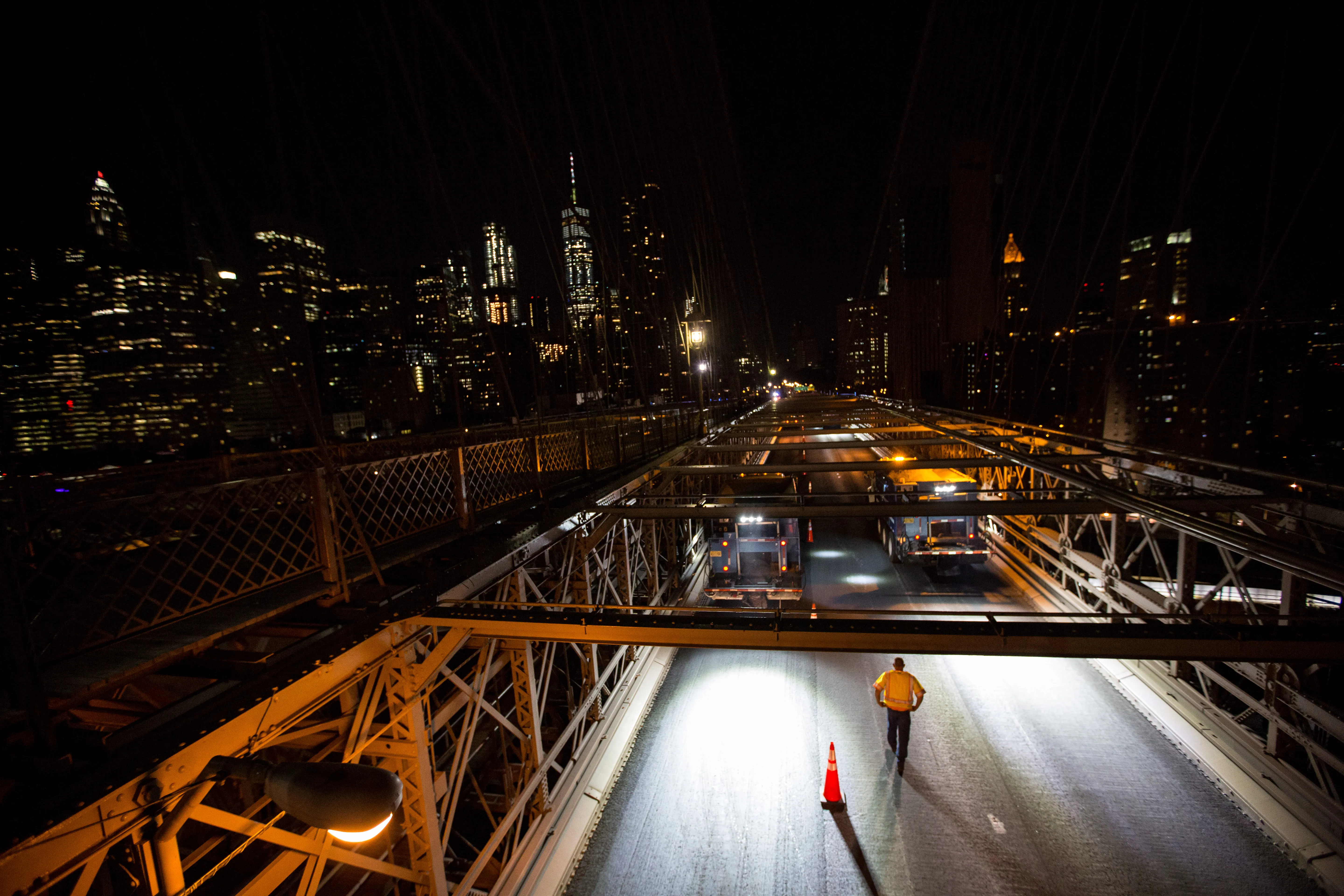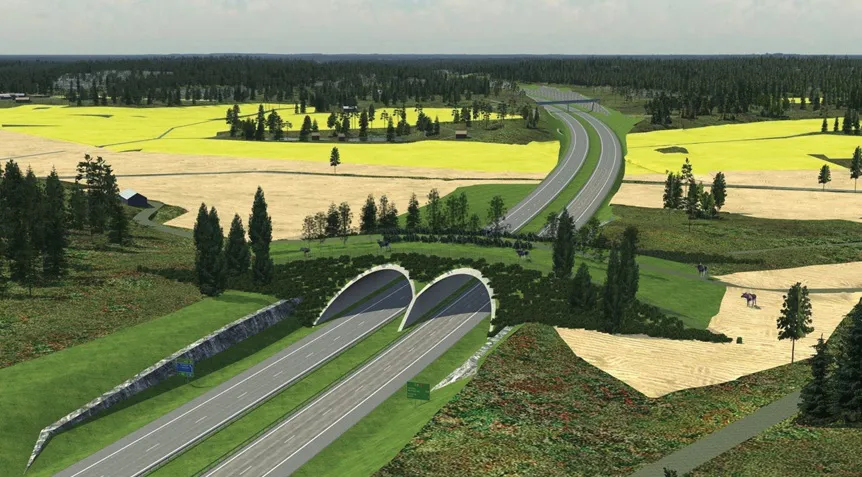Neckarauer overpass, a railroad bridge adjacent to the plant of German paving equipment manufacturer Vögele, is one of Mannheim's main traffic arteries. Built in 1936, the overpass represents an important link into the city for commuters coming from the south of the Rhine-Neckar region being used by some 60,000 vehicles/day, together with several tram lines running every five minutes. Corrosion has caused heavy damage to the steel girder bridge, and recently a 30km/hour speed limit has been in place along w
July 24, 2012
Read time: 2 mins

Neckarauer overpass, a railroad bridge adjacent to the plant of German paving equipment manufacturer
Corrosion has caused heavy damage to the steel girder bridge, and recently a 30km/hour speed limit has been in place along with a ban on vehicles over 16tonnes.
Planning for a new bridge has been finalised, but an important objective is to keep the Neckarau overpass open to traffic during the period scheduled for building the new structure.
In mid-2007, construction work for a provisional bridge began next to the old one. Part of this bridge reaches into the land of
Construction company Achatz, as a local partner of the contractors for the New Neckarau Overpass, was awarded the contract to build the access areas for the bridge, carrying out asphalt surfacing and installing the tramway tracks.
For asphalt paving, the company used a Vögele SUPER 800 and placed some 80tonnes of asphalt mix for the wearing course. Combined with an AB 200 Extending Screed in TV version, the small paver was said to be the ideal candidate for the job.








